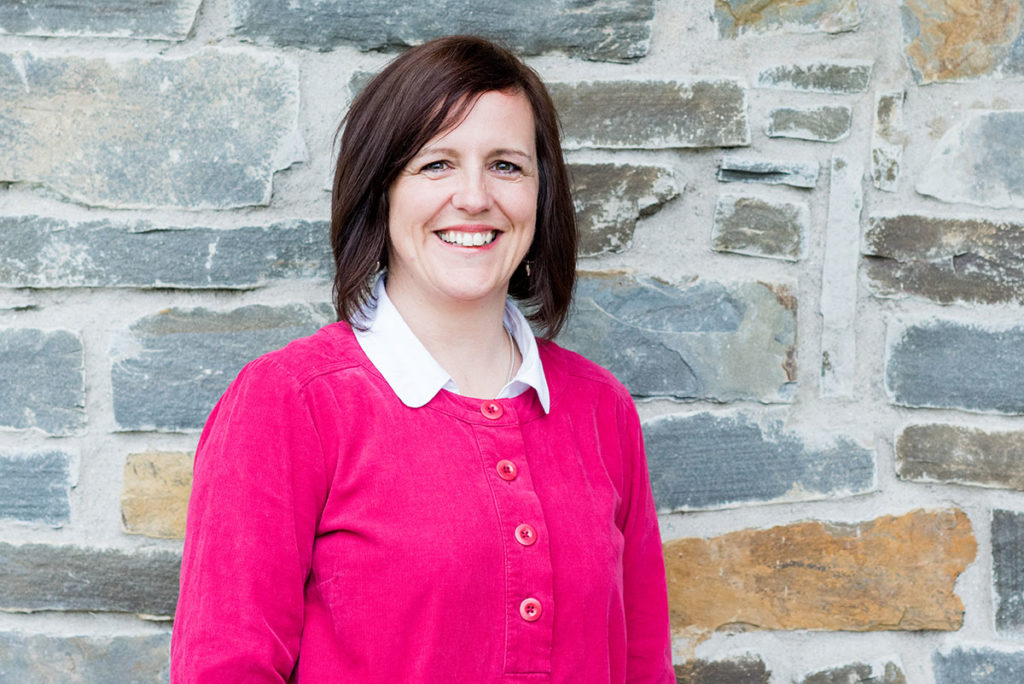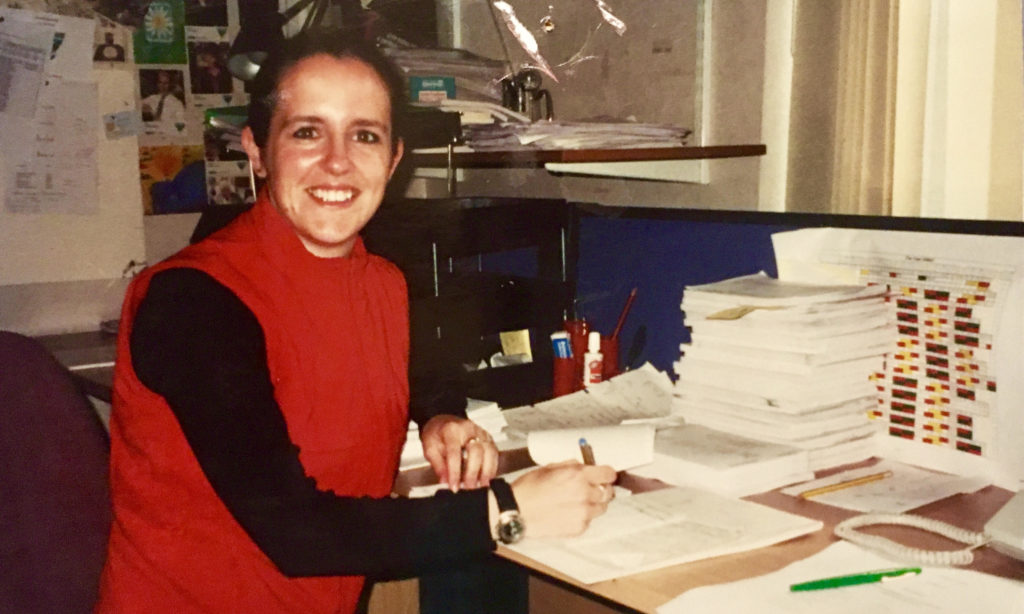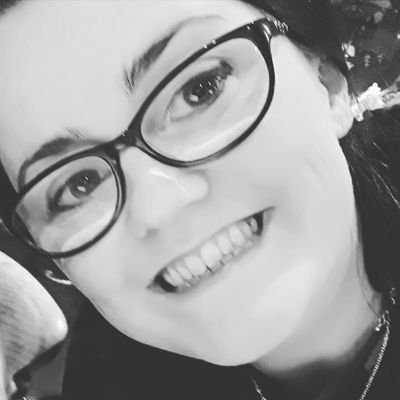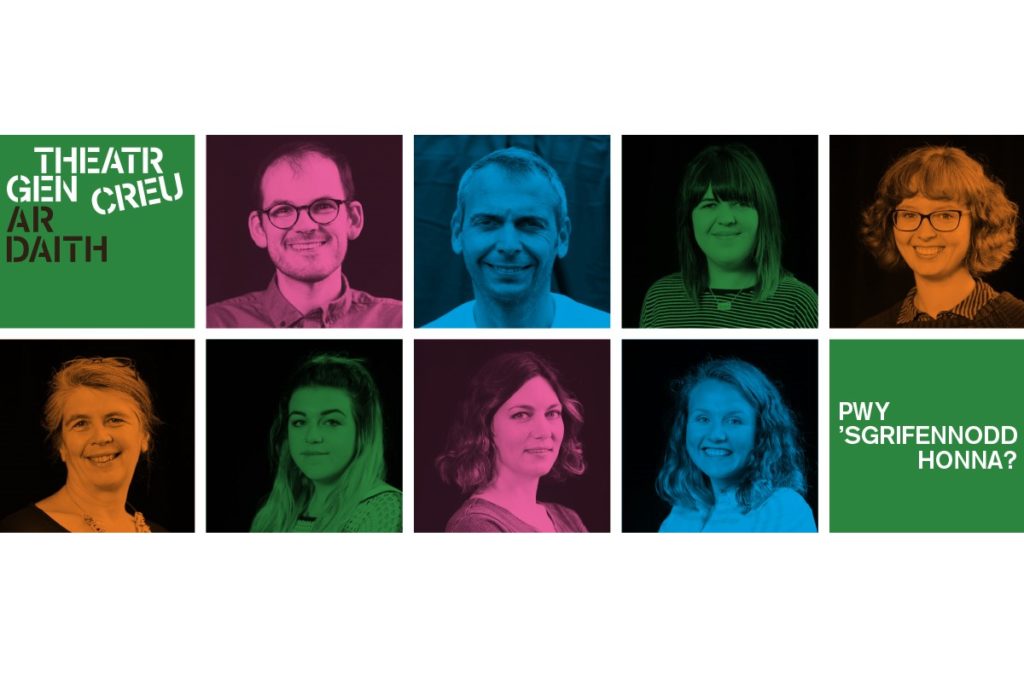
Hi Rhian great to meet you, what got you interested in the Arts?
I’ve always loved watching soap operas, drama, films and reading good stories. In my teens I wrote a few short stories that were published in magazines and books and then decided to follow my dream and see if I could get a job doing something creative. I had no idea what I could do, but kept knocking at different doors and got a place on a Cyfle course as a trainee scriptwriter based in Caernarfon. I was paid as an apprentice and had amazing experiences working on scripts for dramas on S4C and got a chance to meet loads of good people. I then got a job at Pobol y Cwm as an Assistant Script Editor and remember that immense feeling of pride when walking through the BBC Wales double doors. I became a Script Editor and later a Storyliner and got the chance to write a script or two, and had a ball helping create stories for some of Wales’ most colourful characters.

I then decided to move back home to Swansea where Tinopolis TV took me on as a fledgling TV Producer and gave me a chance to keep telling dramatic stories through documentaries for over a decade. I’ve been with Theatr Genedlaethol Cymru for just over 3 years now and am still relishing the chance to tell good, relevant stories in different ways.
Your role in the company is that of the Executive Producer, you are also responsible for all the productions and also the participation work, which includes working with the wider audience. That’s a role with a great deal of breadth. How do you manage to cover all of these areas?
Variety is the spice of life! It’s a broad remit but I relish the challenge. To me, the audience is key to everything we do, and our participatory activities with audiences are as important as our productions. We’re increasing these activities, listening to what people want and acting upon it.

Llinos Jones 
Fflur Thomas 
Nia Skyrme
Theatr Gen has a cracking little team in Llinos Jones, our Participation Officer, and Fflur Thomas and Nia Skyrme, our Assistant Producers. Together, as well planning and assuring the smooth running of Theatr Gen productions, we co-ordinate our Drama Clubs with Menter Iaith Gorllewin Sir Gâr, Theatr Mwldan and Theatr Felinfach; our wellbeing activities with the Carmartheshire Fusion network; engagement with audiences in theatre venues for our BSL performances; with Welsh learners across Wales via pre show talks and Welsh learner lessons taught nationally in conjunction with the work of the National Centre for Learning Welsh; with educational specialists so that we support the new curriculum and provide resources in the Welsh language; with venues in introducing a national ‘pay what you decide’ scheme for presentations of our New Playwrights’ Group readings, and on and on. We’re trying our best, but are far from perfect, and welcome all comments and suggestions.

We want to reach further and wider and I feel that, as the Welsh-language, National Theatre company, we have a huge responsibility and need to act to remove barriers to accessing our work. We don’t claim to do everything well or perfectly, but we’re trying our best: we’re scrutinising the value of everything we do, changing within a Wales that’s changing and hopefully learning from our mistakes.
Theatr Genedlaethol Cymru are currently rehearsing Merched Caerdydd (Cardiff Girls) by Catrin Dafydd and Nos Sadwrn o Hyd (Saturday Night Forever) by Roger Williams. The two plays will be performed as a double bill touring Wales this spring. Both plays reflect different aspects of contemporary Wales. Do you think live theatre still feels relevant to younger audiences with competition for drama audiences from on demand streaming sites such as Netflix?
Nothing beats that feeling of seeing a dramatic story live and that shared experience of reacting there and then to the performance and the script. With so much competition, it’s harder to make theatre relevant, especially to younger audiences, but therein lies the challenge, and I love a challenge.
I’m also a board member with Mess Up The Mess, an organisation that offers dynamic theatre making experiences to young people, because I sincerely believe in the importance of engaging younger audiences. You talk about Netflix. In 2017, Theatr Genedlaethol Cymru piloted our first cinematic theatrical screening through broadcasting our performance of Macbeth, both live and as-live, from Caerphilly Castle to 11 cinemas across Wales. We branded it Theatr Gen Byw.
Moving forward, we need to embrace the digital agenda. I’ve had a vision that youngsters, and indeed everyone, will be able to access our productions, and also influence them in terms of content, whenever they want, when it suits them, on their own, in a group, wherever they are. We need to be inclusive, not exclusive and this means providing as many opportunities as possible for everyone to enjoy a variety of Welsh theatrical works, live and as-live.
Both playwrights Catrin Dafydd and Roger Williams have had success recently in TV Drama first produced in the Welsh and then English Language. Is Wales unique in writers of this calibre writing for both TV and Theatre at the same time?
Isn’t it great that Welsh-language television writers like Roger and Catrin, Siôn Eirian too, and many more, can also be Welsh-language playwrights, that Welsh-language TV Producers, like me (and Roger), can also be Welsh-language theatre Producers and that TV Directors like Ffion Dafis (who’s also an actress) can direct an episode of Pobol y Cwm as well as direct a theatre production? Mared Swain, who’s currently directing the first show in our double bill, Merched Caerdydd and Nos Sadwrn o Hyd, which opens this week in Theatr Clwyd, was also a Story Producer on the S4C series Gwaith Cartref. I think I bore my colleagues about the significance of transferable skills, but just because you haven’t worked in a sector doesn’t mean your experiences can’t benefit another sector, and I wish to see more cross sector working within the creative industries and culture sector I truly believe that both the theatre and TV sectors would benefit.
The production will have two BSL performances, at Theatr Clwyd in Mold on the 15 March, 19:45 and then the Weston Studio, Wales Millennium Centre, Cardiff on 11 April, 19:00 Can you please tell us why you feel BSL supported performances are an important part of your offer for audiences?

Cathryn McShane 
Sherman 5 
Jonny Cotsen
It started with a desire to be more inclusive and an admiration of the good practices established by Sherman 5 at Sherman Theatre and now it’s an integral part of our work. Finding Cathryn McShane, a Welsh-speaking BSL interpreter, and Nia Skyrme, a Welsh-speaking producer with experience of facilitating BSL performances, was key to moving this vision forward. Jonny Cotsen supported us in our initial pilot, and recently encouraged us to pilot an integrated BSL performance of Estron by Hefin Robinson.
I think it’s important for all audience members to see an interpreter on stage. Merched Caerdydd and Nos Sadwrn o Hyd is the third national touring production where we have provided this service, and I’m delighted that Cwmni’r Frân Wen is now also providing this service (by Cathryn) on their current national tour of Anweledig. As a national Welsh-language theatre company I feel that we have a huge responsibility to keep moving forward and hopefully help move the sector forward in this regard. We need to start thinking now, what’s next?
Get the Chance works to support a diverse range of members of the public to access cultural provision. In your personal experience, are you aware of any barriers to cultural provision?
There are many. On a personal note, I have friends and family that struggle to commit to making it to a Welsh-language theatre production even though they all live their life happily through the medium of Welsh. People often think their Welsh is not good enough or that the nature of the Welsh language used in a play will be too difficult to understand fully. We try to communicate that our Welsh-language theatre productions are inclusive and that we offer a wide range of productions, some that use colloquial language, others more poetic language, some using North Walian dialect, others South Walian dialect and some in urban Welsh and others in rural Welsh.
The reality is that language is only one element in a whole gamut of barriers to theatre productions. We have a duty towards all people facing barriers to our productions, and that is why we actively seek partners from all walks of life to help us make this journey for our audience to access our work an easier one.
As well as a comprehensive package of activity to support Welsh Learners, I believe this is the first time your unique App Sibrwd will have full translation from Welsh to English. This offers exciting opportunities for new audience to access your work. How has Sibrwd developed as an access tool for audiences?

You’re right, we’re piloting something new with Sibrwd this time and Sibrwd, our smart phone app, will include a full translation of both plays in this double bill. We’ve had feedback from our audiences, including people who are deaf or have hearing loss, and this is what they want, so we want to give it a go. I’ve seen it, and it looks and feels great. We look forward to receiving audience feedback on this tour, as we continue to develop this resource.
If you were able to fund an area of the arts in what would this be and why?
A national participation project in conjunction with venues across Wales that will build some excitement around theatre and culminate in a national performance in venues at the same time. We want to support the venues as they try to grow and diversify their audiences.
What excites you about the arts?
The fact that everything and anything is possible, with the right people.
What was the last really great thing that you experienced that you would like to share with our readers?
The story that’s touched me the most, recently, is a book called Elanor Eliphant is Completely Fine. It’s the story of an out-of-the-ordinary heroine whose weirdness and wit make for an irresistible story as she realizes the only way to survive is to open your heart – an important message for us all.

Many thanks for your time, Rhian.
You can find out more about the work of the company and its work here
Please note this article is paid for content.
